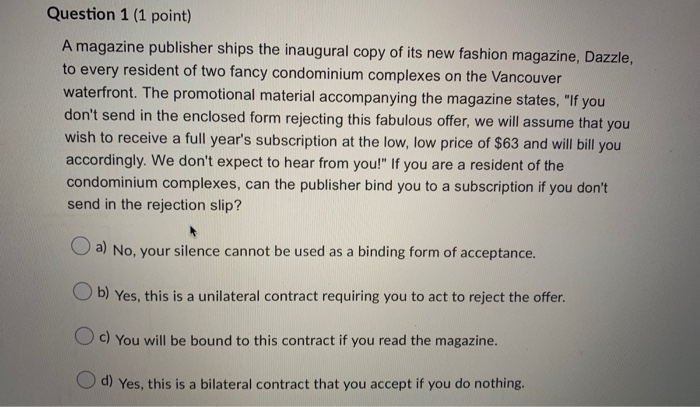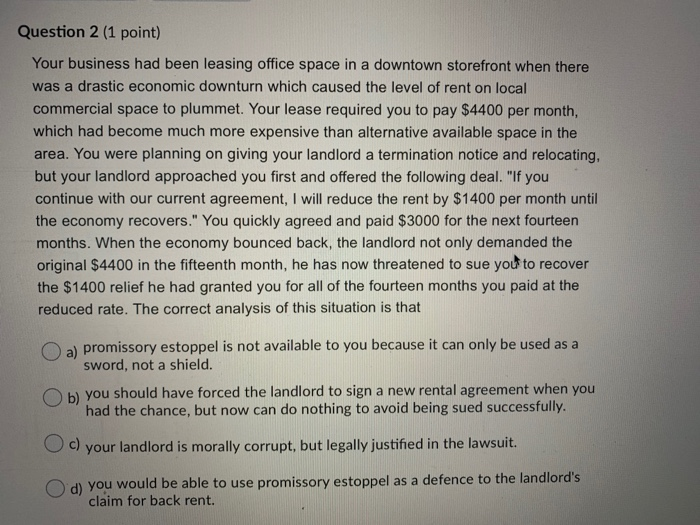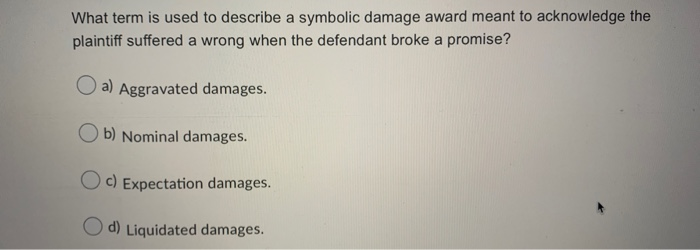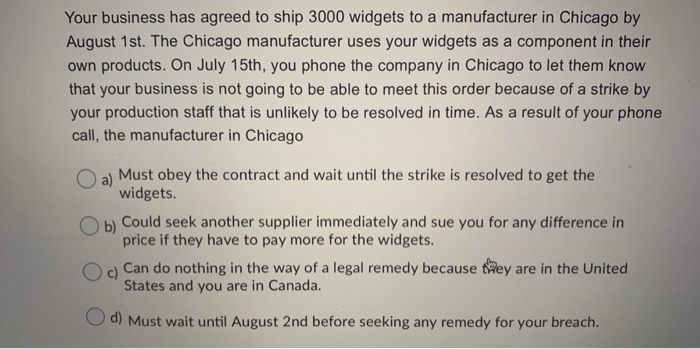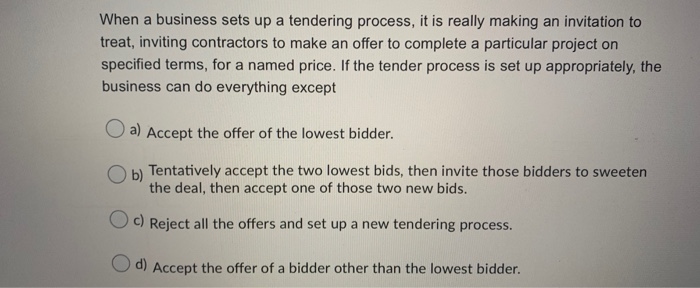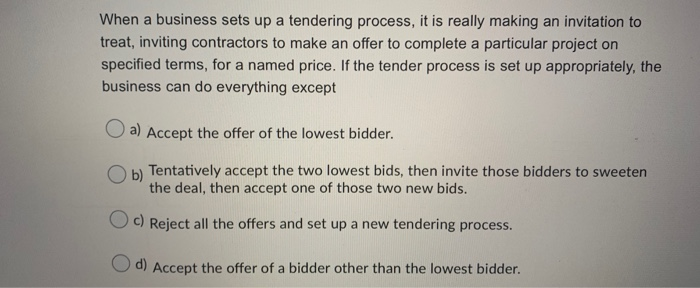Question 1 (1 point) A magazine publisher ships the inaugural copy of its new fashion magazine, Dazzle, to every resident of two fancy condominium complexes on the Vancouver waterfront. The promotional material accompanying the magazine states, "If you don't send in the enclosed form rejecting this fabulous offer, we will assume that you wish to receive a full year's subscription at the low, low price of $63 and will bill you accordingly. We don't expect to hear from you!" If you are a resident of the condominium complexes, can the publisher bind you to a subscription if you don't send in the rejection slip? a) No, your silence cannot be used as a binding form of acceptance. b) Yes, this is a unilateral contract requiring you to act to reject the offer. c) You will be bound to this contract if you read the magazine. d) Yes, this is a bilateral contract that you accept if you do nothing. Question 2 (1 point) Your business had been leasing office space in a downtown storefront when there was a drastic economic downturn which caused the level of rent on local commercial space to plummet. Your lease required you to pay $4400 per month, which had become much more expensive than alternative available space in the area. You were planning on giving your landlord a termination notice and relocating, but your landlord approached you first and offered the following deal. "If you continue with our current agreement, I will reduce the rent by $1400 per month until the economy recovers." You quickly agreed and paid $3000 for the next fourteen months. When the economy bounced back, the landlord not only demanded the original $4400 in the fifteenth month, he has now threatened to sue you to recover the $1400 relief he had granted you for all of the fourteen months you paid at the reduced rate. The correct analysis of this situation is that a) promissory estoppel is not available to you because it can only be used as a sword, not a shield. b) you should have forced the landlord to sign a new rental agreement when you had the chance, but now can do nothing to avoid being sued successfully. c) your landlord is morally corrupt, but legally justified in the lawsuit. d) you would be able to use promissory estoppel as a defence to the landlord's claim for back rent. What term is used to describe a symbolic damage award meant to acknowledge the plaintiff suffered a wrong when the defendant broke a promise? a) Aggravated damages. Ob) Nominal damages. O c) Expectation damages. Od) Liquidated damages. Your business has agreed to ship 3000 widgets to a manufacturer in Chicago by August 1st. The Chicago manufacturer uses your widgets as a component in their own products. On July 15th, you phone the company in Chicago to let them know that your business is not going to be able to meet this order because of a strike by your production staff that is unlikely to be resolved in time. As a result of your phone call, the manufacturer in Chicago Must obey the contract and wait until the strike is resolved to get the widgets. Ob) Could seek another supplier immediately and sue you for any difference in price if they have to pay more for the widgets. Oc) Can do nothing in the way of a legal remedy because they are in the United States and you are in Canada. d) Must wait until August 2nd before seeking any remedy for your breach. When a business sets up a tendering process, it is really making an invitation to treat, inviting contractors to make an offer to complete a particular project on specified terms, for a named price. If the tender process is set up appropriately, the business can do everything except a) Accept the offer of the lowest bidder. Ob) Tentatively accept the two lowest bids, then invite those bidders to sweeten the deal, then accept one of those two new bids. c) Reject all the offers and set up a new tendering process. d) Accept the offer of a bidder other than the lowest bidder. When a business sets up a tendering process, it is really making an invitation to treat, inviting contractors to make an offer to complete a particular project on specified terms, for a named price. If the tender process is set up appropriately, the business can do everything except a) Accept the offer of the lowest bidder. Ob) Tentatively accept the two lowest bids, then invite those bidders to sweeten the deal, then accept one of those two new bids. c) Reject all the offers and set up a new tendering process. d) Accept the offer of a bidder other than the lowest bidder
